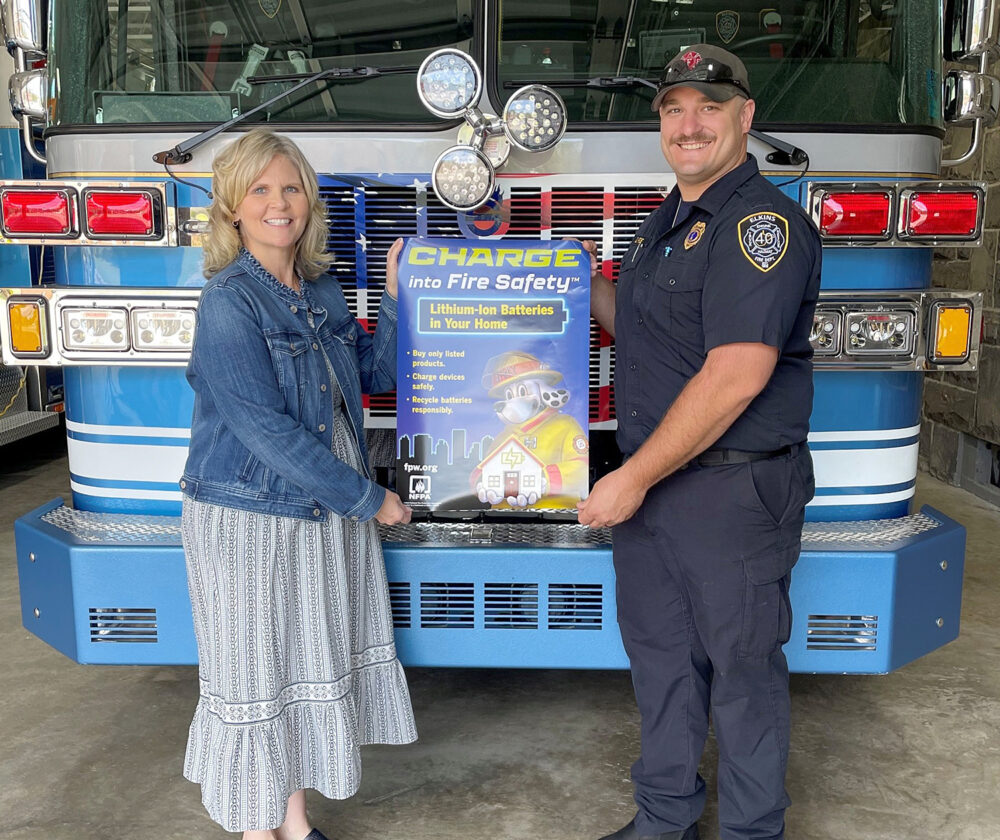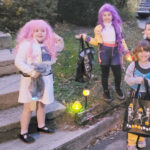Elkins Fire Department offering tips for Fire Prevention Week

Submitted photo State Farm Agent Jodie Parrack, left, and Owen Poe from the Elkins Fire Department recently joined forces to promote fire safety and raise awareness about lithium-ion battery risks during Fire Prevention Week.
ELKINS — The Elkins Fire Department and State Farm Insurance have joined forces with the National Fire Protection Association to promote Fire Prevention Week, which begins on Sunday and runs through Oct. 11.
This year’s NFPA theme, “Charge Into Fire Safety: Lithium-Ion Batteries in Your Home,” provides information to the public on how to buy, charge and dispose of or recycle lithium-ion batteries safely.
“Lithium-ion batteries are powerful, convenient, and they’re just about everywhere,” said Lorraine Carli, vice president of Outreach and Advocacy at NFPA. “Making sure the public knows how to handle them safely is critical to minimizing the potential risks they present.”
Smartphones, tablets, lawn tools, laptops, e-cigarettes, headphones and many toys are among the items powered by lithium-ion batteries. If not used correctly or damages, the batteries can overheat and start a fire, or explode.
State Farm agent Jodie Parrack and the Elkins Fire Department are offering some tips and guidelines, which were issued and approved by the NFPA. Parrack also donated a toolkit for Fire Prevention Week resources to the EFD. The toolkit provides activities and information for children and adults.
The first tip offered has to do with purchasing products. It is recommended when consumers buy products that use lithium-ion batteries that the package be stamped by a nationally recognized testing lab and meets established safety standards.
The second tip has to do with charging devices that use lithium-ion batteries. It is recommended that consumers only use the charging cables that come with the product they purchased. If a new charger is needed, one should be obtained from the original manufacturer. It is also recommended that when charging devices, they are done so on a hard surface. Charging devices under a pillow, on a bed, or on a couch could result in a fire. Devices should never be overcharged and unplugged when the batteries are completely charged.
The third tip has to do with disposal and recycling of lithium-ion batteries. The batteries should never be thrown in the trash or a regular recycling bin because they could catch fire.
Recycling devices or batteries at a safe battery recycling location is recommended. Visit www.call2recycle.org to find a recycling location.
For more information, go to www.nfpa.org.




